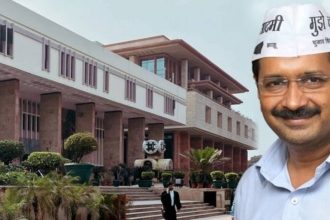The Balochistan govt announced a general amnesty plan for all home-based Baloch militants who are willing to renounce violence and lay down their arms.
The amnesty plan — drawn up in the hope of stubbing out the insurgency that has plagued the province since 2006 — was unveiled at the end of a meeting of the provincial apex committee, headed by Balochistan Chief Minister Dr Abdul Malik Baloch. The meeting was convened to review progress on the implementation of the National Action Plan.
According to an official handout, the apex committee meeting analysed in detail the need for maintaining law and order in the province.
The meeting agreed that a “peaceful, conciliatory Balochistan policy will be implemented so that the youngsters who want to lay down arms and join the mainstream can be granted amnesty and be encouraged to rehabilitate themselves”.
A senior government official said the amnesty scheme only applies to those Baloch insurgents who are fighting locally. “Those who are hiding abroad will be dealt with legally,” he said.
Under the scheme, he said, small-time fighters will be paid Rs500,000. “Mid-level commanders will get Rs1 million while top commanders will be paid Rs1.5 million,” he said, adding that rich cash prizes were offered to ensure the fighters do not rejoin insurgent groups.
During the governor’s rule in 2012, the then provincial governor, Nawab Zulfiqar Magsi, had also announced Rs10,000 in general for all fighters surrendering their weapons in Balochistan.
The apex committee also reviewed the overall security situation in the province after poring over different reports and recommendations of the concerned authorities.
Members of the committee noted that the measures taken with the coordination of all the concerned departments were satisfactory and had developed a sense of security amongst the masses.
The committee also voiced satisfaction that sustained action against miscreants, criminals and other anti-social elements had been largely fruitful. They agreed that such elements would not be granted any concession and action would continue against them.
They also agreed that outlawed religious outfits and extremists would find no space in the province and strict action would be taken against them.
The apex committee also examined issues related to registration of religious seminaries and their possible reorganisation, Afghan refugees as well as the use of funds in terrorist activities.
The committee decided that the education department would complete registration of seminaries while the provincial government would apprise the federal government of its stance over the issue of Afghan refugees.
The Federal Investigation Agency (FIA), police and National Accountability Bureau (NAB) would be investigating matters regarding the funding of terrorist outfits and elements involved in them would be dealt in accordance with the law, the apex committee resolved.
Several reports on the latest terrorist activities in Quetta were presented at the meeting. The Quetta commissioner provided details regarding the security provided to long route buses. Panel members underscored the need for building the capacity of Balochistan Levies and the home department was directed to take necessary measures in this regard.
Home Minister Mir Sarfraz Bugti, Commander Southern Command General Nasir Janjua, Balochistan Chief Secretary Saifullah Chatta, general commanding officers, Frontier Corps (FC) inspector general, home secretary, Balochistan’s inspector general of police, Quetta’s commissioner and other high officials attended the meeting.





